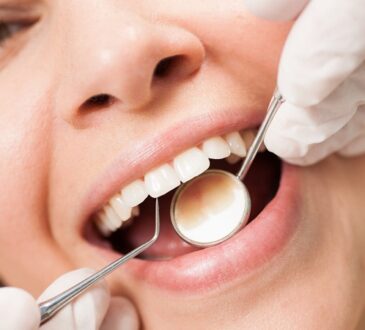
Testosterone Replacement Therapy (TRT) is a medical treatment designed to restore testosterone levels in individuals with low testosterone. This therapy can be administered through various methods, including injections, patches, gels, and pellets. Many men with low testosterone report improved energy levels, sex drive, and mood after testosterone treatment.
What is TRT?
TRT involves supplementing the body with testosterone to achieve normal levels. It is often prescribed to men who have been diagnosed with hypogonadism, a condition where the body does not produce enough testosterone. The goal of TRT is to alleviate symptoms associated with low testosterone, such as fatigue, depression, and decreased libido.
Who Can Benefit from TRT?
Individuals who have been clinically diagnosed with low testosterone levels and are experiencing related symptoms may benefit from TRT. This includes men with hypogonadism, as well as those who have undergone certain medical treatments or have conditions that affect hormone levels. It is important to consult with a healthcare provider to determine if TRT is the right option.
Potential Risks and Side Effects
While TRT can offer significant benefits, it is not without risks. Potential side effects include acne, sleep apnea, and an increased risk of cardiovascular issues. Patients should be closely monitored by their healthcare provider to manage any adverse effects and ensure the therapy is effective. Regular check-ups and blood tests are essential to monitor testosterone levels and overall health during TRT.
The Role of Nutrition in Enhancing TRT
Nutrition plays a crucial role in maximizing the benefits of Testosterone Replacement Therapy (TRT). A diet that provides sufficient energy and maintains stable blood sugar levels can enhance testosterone production by reducing the impact of stress hormones. By focusing on essential nutrients and making informed food choices, individuals can support their TRT journey effectively.
Exercise Strategies to Complement TRT
Exercise plays a crucial role in maximizing the benefits of Testosterone Replacement Therapy (TRT). By incorporating a well-rounded fitness routine, individuals can enhance their overall health and support hormonal balance.
Strength Training Benefits
Strength training, such as weightlifting, is particularly effective in boosting testosterone levels. Resistance exercises can stimulate testosterone production, which is essential for supporting hormonal balance. Additionally, strength training helps in building muscle mass, improving bone density, and increasing metabolic rate.
Cardio and Testosterone Levels
Cardiovascular exercises are also important for overall health and can complement TRT. While excessive cardio might lead to a decrease in testosterone levels, moderate-intensity cardio can improve cardiovascular health without negatively impacting hormone levels. Activities like brisk walking, cycling, and swimming are excellent choices.
Incorporating Flexibility and Balance Exercises
Flexibility and balance exercises should not be overlooked. Practices such as yoga and Pilates can improve flexibility, reduce the risk of injury, and promote overall well-being. These exercises also help in reducing stress, which can have a positive impact on hormone levels.
The Importance of Sleep for TRT Success
Sleep plays a crucial role in the success of Testosterone Replacement Therapy (TRT). Proper sleep is essential for hormone regulation, including testosterone. It’s vital to sleep well enough. Poor sleep can hurt the hormones in your body, including testosterone. Aim for a good 7-9 hours of sleep each night.
Sleep and Hormone Regulation
Hormones are regulated during sleep, and testosterone levels are no exception. Deep sleep stages are particularly important for the production and release of testosterone. Without adequate sleep, the body’s ability to produce testosterone can be significantly impaired.
Creating a Sleep-Friendly Environment
Creating an environment conducive to sleep can greatly enhance the quality of rest. Consider the following tips:
- Maintain a cool, dark, and quiet bedroom.
- Invest in a comfortable mattress and pillows.
- Establish a regular sleep schedule by going to bed and waking up at the same time every day.
- Limit exposure to screens and blue light before bedtime.
Overcoming Common Sleep Issues
Many people face challenges when it comes to getting quality sleep. Here are some strategies to overcome common sleep issues:
- Practice relaxation techniques such as deep breathing or meditation before bed.
- Avoid caffeine and heavy meals close to bedtime.
- Create a bedtime routine to signal to your body that it’s time to wind down.
- If sleep problems persist, consult a healthcare provider for further advice and potential treatments.
Managing Stress to Optimize TRT Results
Managing stress levels may help restore hormonal balance and optimize testosterone production. Chronic stress can lead to elevated cortisol levels, which negatively impact testosterone. By incorporating stress-reduction techniques, individuals can support their TRT journey and overall well-being.
Monitoring and Adjusting Your TRT Plan
After starting TRT, it’s crucial to monitor its effects closely. Regular blood tests are vital to check your hormone levels and ensure the treatment is working effectively. These tests help in identifying any imbalances that might need addressing.
Regular Check-Ups and Blood Tests
Regular check-ups with your healthcare provider are essential. These visits allow for a comprehensive review of your progress and any side effects you might be experiencing. Blood tests should be conducted periodically to monitor testosterone levels, as well as other important markers such as red blood cell count and liver function.
Recognizing Signs of Imbalance
It’s important to be aware of the signs that might indicate an imbalance in your hormone levels. Symptoms such as mood swings, fatigue, and changes in libido can be indicators that your TRT plan needs adjustment. Keeping a journal of your symptoms can be helpful when discussing your treatment with your healthcare provider.
Working with Your Healthcare Provider
Collaboration with your healthcare provider is key to the success of your TRT plan. They can help you interpret your blood test results and make necessary adjustments to your treatment. Open communication about your symptoms and any side effects will enable your provider to tailor the plan to your specific needs.




